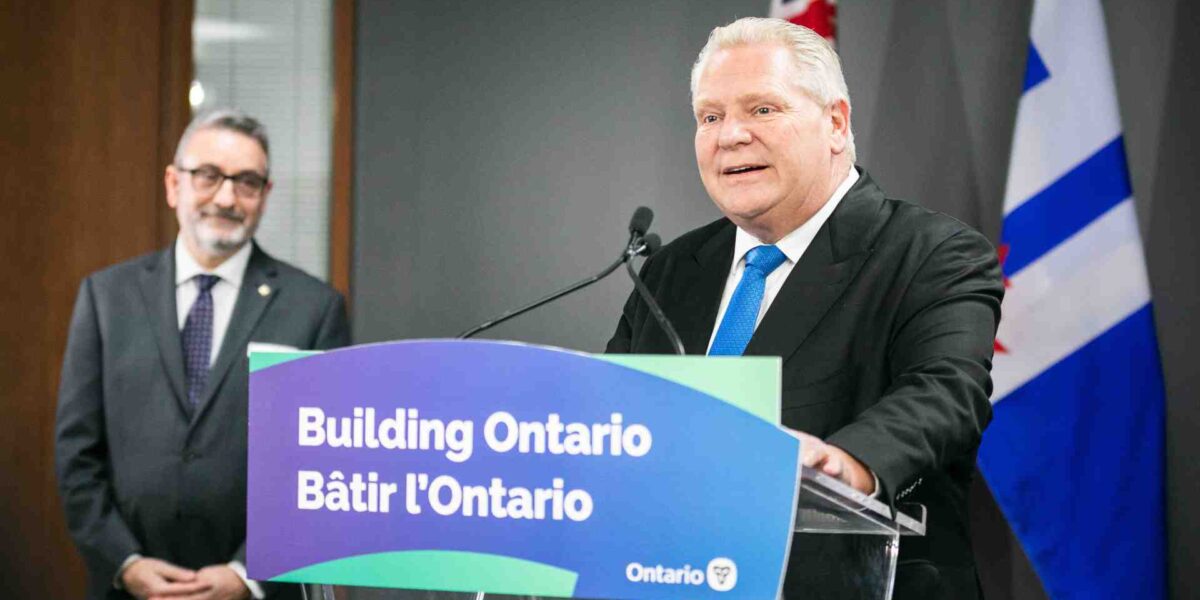Ontario Premier Doug Ford’s government tabled their budget for 2024, but unions warn that the budget fails to support both workers and the services that struggling Ontarians rely on.
The budget forecasts that the province will take in $205 billion in revenue this year, and will spend $214 billion, which is up by about $7 billion from the previous year.
It is the largest spending budget in the history of Ontario, and includes things like a break on certain mandatory aspects of car insurance and the creation of a new school for family doctors at York University.
The budget however does not spend money to support teachers in overcrowded classrooms, or to improve access to a public healthcare system that has been stretched to its limit.
Healthcare spending below inflation
“Today’s budget is just more of the same from a government that, frankly, can’t be trusted with our money or the public services we all rely on,” said Ontario Public Service Employees Union president JP Hornick. “They’re happy to pay three times more to have health care services delivered in for-profit clinics while our public hospitals – especially in rural and small-town Ontario – continue to struggle. Emergency rooms are forced to close, putting lives at risk.”
The budget only increases spending on healthcare by 1.3 per cent, well below the rate of inflation, an effective cut to healthcare in terms of real dollars.
The government’s direct spending on hospitals is only increasing by four per cent, a rate which the Ontario Association of Nurses (ONA) says will not alleviate the staffing shortages many hospitals are experiencing.
“ONA was crystal clear in our pre-budget submission about what is needed to improve public health care,” says ONA provincial president Erin Ariss, who is a registered nurse. “There are several actions this government could and should have taken to address the health-care crisis it has created. Instead, Ontarians will see their taxpayer money flowing to for-profit, private corporations as the public health-care system falls further into disrepair.”
Education budget doesn’t address teacher retention issues
Education is another important sector where the government again chose to provide funding below the rate of inflation.
“Without adequate investment, school boards are again being forced to do more with less. This means cuts to valuable programs and services as boards seek to balance their budgets. In many cases, these services support our most vulnerable students, including those with special education needs, Indigenous and racialized students, and English language learners,” reads a statement from the Elementary Teachers Federation of Ontario.
The Ford government allotted just a 2.7 per cent increase to education in this year’s budget, but unions are criticizing it for doing nothing to address issues around teacher retention and recruitment.
“The Progressive Conservatives claim to care about student needs, yet they have allowed a retention and recruitment crisis to take hold across Ontario, negatively impacting schools and students in every district in the province,” reads a statement from Ontario Secondary School Teachers Federation president Karen Littlewood.
What is included in the budget is $30 million over three years to install better lighting, security cameras and vape detectors in schools.
The budget also continues the freeze on post-secondary school tuition, while also prohibiting those schools from expanding recruitment of international students. With being unable to raise the cost of tuition, post-secondary institutions have depended more and more on the recruitment of international students, who pay higher fees, to help make up budget shortfalls.
Ontario Federation of Labour (OFL) president Laura Walton said that this was just another Conservative budget that underspent on Ontario’s public services, making life harder for workers, their families and others who depend on those services.
“This Budget will make life harder and more expensive for the people of Ontario,” said Walton. “When you don’t fund the services people need, it forces them to pay out of pocket – and that makes the cost-of-living crisis worse for workers and their families.”



